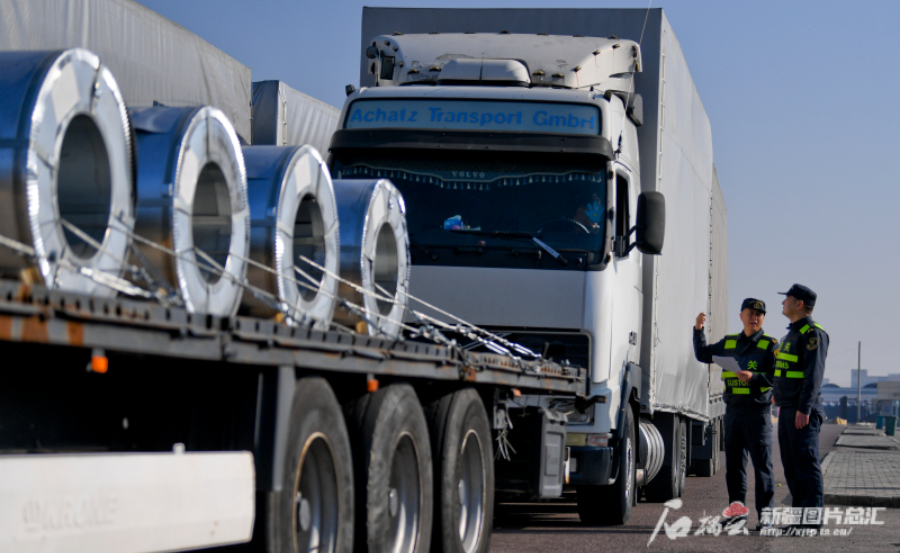Shiliuyun-Xinjiang Daily (Reporter Chen Qiangwei) news: On February 5, 2024, as informed by Urumqi Customs, in 2023, 568,000 vehicles were exported through ports in Xinjiang, a year-on-year increase of 407.6 percent. The export volume and price of domestically produced cars have risen simultaneously, and the cars continue to sell well in countries participating in the Belt and Road Initiative.

Photo taken on November 7, 2023 shows staff of Horgos Customs conduct vehicles clearance in the supervision area. (File photo)
In recent years, leveraging the advantages of the industrial chain, China's automobile exports have seen explosive growth. Consequently, Xinjiang's ports have experienced a surge in vehicle exports, with models from 29 brands including BYD, Changan, Chery, Yutong, and Zeekr, mainly destined for countries such as Russia, Uzbekistan, and Kazakhstan.
In 2023, Horgos, Alataw, and Irkeshtam ports ranked as the top three in Xinjiang in vehicle export volume. Among them, 304,000 vehicles were exported through Horgos Port, a year-on-year increase of 307.5 percent, accounting for over 50 percent of Xinjiang's total vehicle exports, making it the land port with the largest car exports in the country. The peak daily export volume at this port reached 1,394 vehicles.
In the year 2023, over 90 percent of the vehicles exported through Alataw Port were dispatched by rail. The Alataw railway port alone facilitated the export of 124,000 automobiles, a year-on-year increase of 450.1 percent.
At present, the export of whole vehicles from the comprehensive bonded areas of Xinjiang is thriving, with four zones in Alashankou, Horgos, Kashi, and Urumqi all having initiated vehicle export operations. Automotive enterprises exporting from these zones are entitled to preferential policies such as advance tax rebates and exemption from storage fees, which has further increased their interests in these zones .
Currently, the export of vehicles through Xinjiang's various ports is primarily conducted through general trade and bonded logistics. This year, Urumqi Customs plans to further innovate its regulatory models, expanding personalized supervision methods across a wider range and multiple levels. It will continuously optimize the business environment at ports and steadfastly support the international expansion of domestic automobile companies.
(A written permission shall be obtained for reprinting, excerpting, copying and mirroring of the contents published on this website. Unauthorized aforementioned act shall be deemed an infringement, of which the actor shall be held accountable under the law.)









